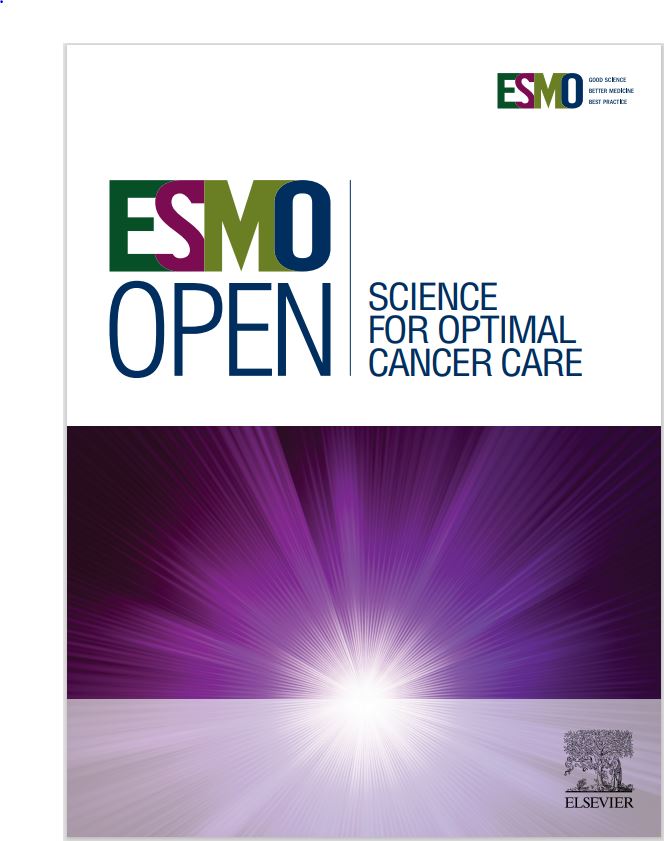Representation of geriatric oncology in cancer care guidelines in Europe: a scoping review by the International Society of Geriatric Oncology (SIOG)
IF 7.1
2区 医学
Q1 ONCOLOGY
引用次数: 0
Abstract
Introduction
Implementation of national cancer policy is frequently shaped by medical guidelines. These guidelines often lack detail addressing the intricate care needs of vulnerable groups such as older adults, hindering the potential impact of these policies.
Objective
To provide an overview of the representation of older adults in European cancer guidelines to identify areas for improvement.
Methods
A scoping review was conducted using the Arksey and O’Malley framework and Levac et al. extension. The search strategy was developed for grey literature (i.e. guidelines) for the five most prevalent primary malignancies (prostate, breast, colorectal, lung, and urinary bladder) in 29 countries (member states of the European Union, Switzerland, and the UK). Data were extracted by a national expert and at least one other reviewer.
Results
A total of 187 guideline reports from 31 jurisdictions were analysed, encompassing general cancer care and selected primary malignancies. The representation of older adults varied by cancer type and region. Dedicated guidelines for older adults were uncommon, with only a few jurisdictions, such as France and Spain, providing age-specific recommendations for certain malignancies. Although some national guidelines addressed older patients, this focus was inconsistent both across different cancers and within the guidelines of the same country.
Conclusions
There is limited representation of geriatric oncology across European cancer guidelines. To enhance representative guideline development, there is a call for greater consideration of older adults’ unique needs. Suggestions include further guidance on the implementation of the comprehensive geriatric assessment and consequent treatment across neoadjuvant, adjuvant, and metastatic settings.
欧洲癌症治疗指南中老年肿瘤学的代表性:国际老年肿瘤学会(SIOG)的范围审查
国家癌症政策的实施常常受到医疗指导方针的影响。这些指导方针往往缺乏针对老年人等弱势群体复杂护理需求的细节,阻碍了这些政策的潜在影响。目的概述欧洲癌症指南中老年人的代表性,以确定需要改进的领域。方法采用Arksey和O 'Malley框架和Levac等人的扩展进行范围审查。搜索策略是针对29个国家(欧盟成员国、瑞士和英国)五种最常见的原发性恶性肿瘤(前列腺癌、乳腺癌、结肠直肠癌、肺癌和膀胱)的灰色文献(即指南)制定的。数据由一名国家专家和至少一名其他审稿人提取。结果共分析了来自31个司法管辖区的187份指南报告,包括一般癌症治疗和选定的原发性恶性肿瘤。老年人的表现因癌症类型和地区而异。针对老年人的专门指南并不常见,只有法国和西班牙等少数司法管辖区针对某些恶性肿瘤提供针对年龄的建议。尽管一些国家指南针对老年患者,但这种重点在不同癌症之间和同一国家的指南中都不一致。结论:在欧洲癌症指南中,老年肿瘤学的代表性有限。为了加强有代表性的指南制定,需要更多地考虑老年人的独特需求。建议包括进一步指导全面的老年评估的实施,以及在新辅助、辅助和转移情况下的后续治疗。
本文章由计算机程序翻译,如有差异,请以英文原文为准。
求助全文
约1分钟内获得全文
求助全文
来源期刊

ESMO Open
Medicine-Oncology
CiteScore
11.70
自引率
2.70%
发文量
255
审稿时长
10 weeks
期刊介绍:
ESMO Open is the online-only, open access journal of the European Society for Medical Oncology (ESMO). It is a peer-reviewed publication dedicated to sharing high-quality medical research and educational materials from various fields of oncology. The journal specifically focuses on showcasing innovative clinical and translational cancer research.
ESMO Open aims to publish a wide range of research articles covering all aspects of oncology, including experimental studies, translational research, diagnostic advancements, and therapeutic approaches. The content of the journal includes original research articles, insightful reviews, thought-provoking editorials, and correspondence. Moreover, the journal warmly welcomes the submission of phase I trials and meta-analyses. It also showcases reviews from significant ESMO conferences and meetings, as well as publishes important position statements on behalf of ESMO.
Overall, ESMO Open offers a platform for scientists, clinicians, and researchers in the field of oncology to share their valuable insights and contribute to advancing the understanding and treatment of cancer. The journal serves as a source of up-to-date information and fosters collaboration within the oncology community.
 求助内容:
求助内容: 应助结果提醒方式:
应助结果提醒方式:


